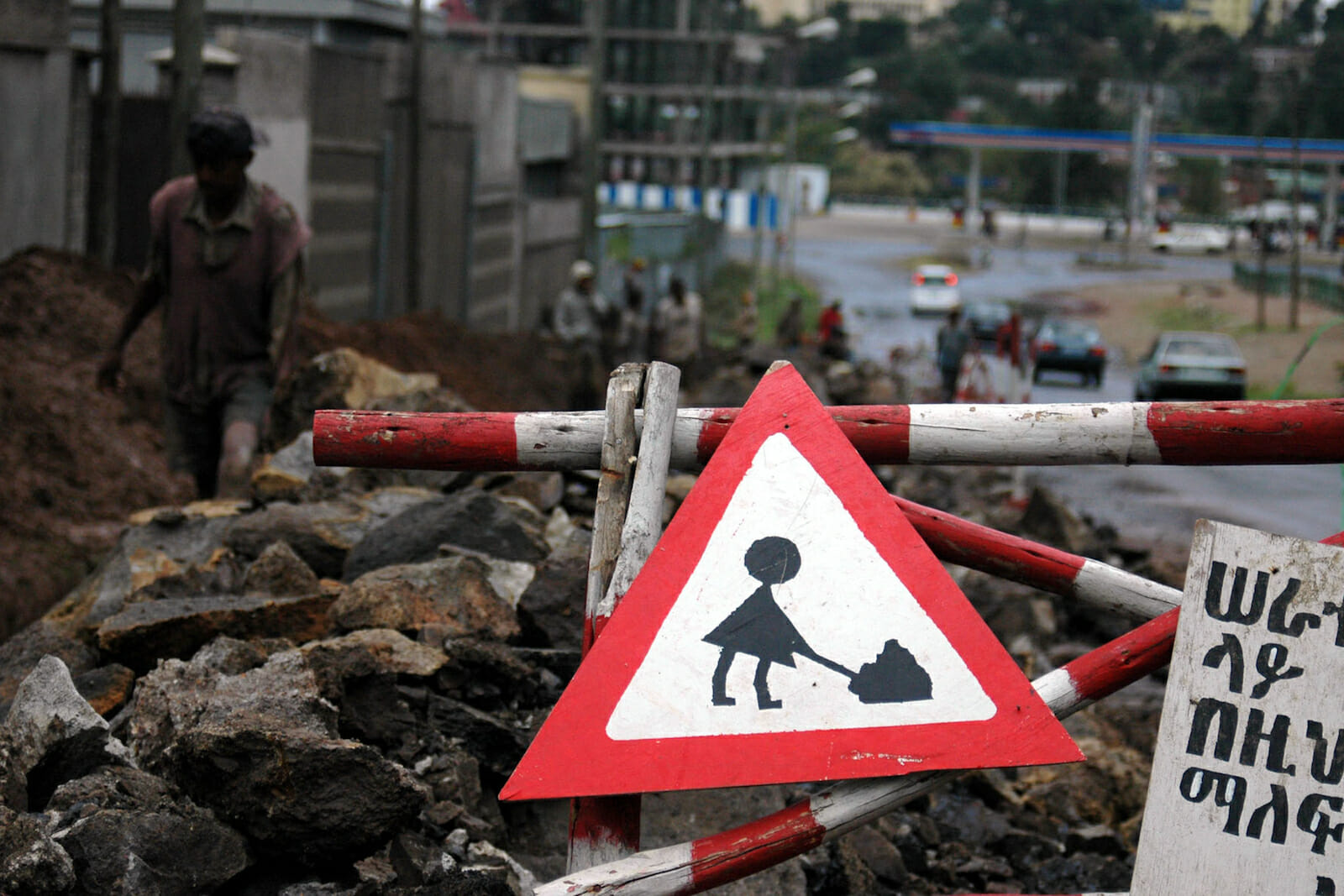
Business
Deeper Regional Integration: An Opportunity for Job Creation in Africa
African countries have the most visa requirements in the world. Only 11 of 54 countries, a mere 20 percent, offer 100 percent liberal access to all African citizens: Seychelles, Uganda, Cape Verde, Togo, Guinea-Bissau, Mauritania, Rwanda, Comoros, Djibouti, Madagascar and Somalia. Another 7 countries, constituting about 13 percent, i.e. Mozambique, Mauritius, Kenya, Senegal, Tanzania, Gambia and Burkina Faso, offer liberal access to citizens from at least 50 percent of the countries.
This is in contrast to the EU, where member states’ citizens enjoy 100 percent freedom of movement in each other’s territories.
This low level of integration relates not only to the movement of people but to trade. Africa as a continent has the lowest level of intra-trade, a mere 12 percent, compared to 65 percent in Europe, 45 percent in North America and 25 percent in South East Asia.
It is also manifested in the air lines where with 12 percent of the global population, Africa accounts for less than 1 percent of the global air service market. A key reason for this under-served status is that Africa has not consolidated its air market. Considering that, in 2013 Africa’s air transport had grown at a rate of 6.6 percent over a decade to become the most rapid growth region globally, and with the potential to grow at 5.7 percent annually over and above the global average of 4.9 percent. With improved intra-Africa flights, Africa’s share of the global air services market can be significantly enhanced.
However, many African countries restrict their air services markets to protect the share held by local airlines, specifically state-owned air carriers. The Yamoussoukro Decision signed off by 44 African Nations and which became binding in 2002 after being endorsed by OAU heads of state and government in 2000, was meant to address this. It commits its signatories to put in place policies to deregulate air services and promote liberalized intra-Africa airspace, a regional air market open to transnational competition. But to date, over 10 years later, while 10 countries have not signed on or completed proper ratification of this decision, the many who are signatories have not implemented it.
Benefits of integration
With the restricted integration, Africa is losing on the economic front.
By enhancing integration in both the movement of people and trade, Africa could potentially add $20 billion annually in agricultural trade. In airlines, an open skies model between just 12 African countries could catalyze creation of more than 150,000 jobs and add up to $1.3 billion to Africa’s GDP. 100 percent open skies across the continent will double and triple these figures.
On the labor market front, integrating Africa’s work-force could potentially reduce brain-drain, the emigration of talent out of Africa. Africa is reported to have lost about 33 percent or a third, of its human capital and continues to lose its skilled personnel at an increasing rate. The brain drain many African countries experience could become rather the transfer of talents across borders. An unemployed nurse from Ghana could earn a decent living in Liberia while contributing to better health services in the host country. A young graduate from Tunisia’s technical schools could find a decent job in the plumbing industry in South Africa and help meet the labor needs in that country. The free movement of labor will also create opportunities for Africa’s youth by encouraging trading, new business and job creation.
How can Africa integrate?
Policy reform and policy implementation are central to regional integration in Africa. It is worth noting that in Africa, mostly it is not the absence of good policies but rather a lack of adequate implementation frameworks that has hamstrung development. As demonstrated earlier, the Yamoussoukro Decision for instance, as promising as it is, is yet to be implemented over 10 years after it was ratified by 44 out of 54 countries, or 80 percent of countries.
Action to address this is already under way. UNEP is leading the way with the Ecosystems Based Adaptation for Food Security Assembly (EBAFOSA), www.ebafosa.org a pan-African policy framework and implementation platform whose creation was facilitated by UNEP in partnership with the AUC, the ACTS, AfDB and other partners to lead in bridging the policy-action-implementation gap. EBAFOSA is providing a policy and implementation platform, a solutions space fostering partnerships to blend the strengths of governments, the private sector, non-profits, academia, research and individuals among others to build mutually benefiting partnerships toward achieving implementation.
The imperative of partnerships as a means of implementation is well implied in the SDG goal 17 and EBAFOSA is well aligned. The mandate of EBAFOSA is to ensure EBA-driven agriculture and its value chains are up-scaled into policy and an implementation framework toward becoming the continental norm through a country driven process. By this, 5 distinct benefits are envisaged; ensure food and nutritional security, enhance climate resilience, enhance ecosystem productivity, and foster forward and backward linkages to value chains and value addition processes to create additional income and as many as 17 million jobs in the continent.
EBAFOSA provides a platform using already existing structures to bridge continental borders and deliver meaningful development to the ordinary citizens by leveraging internal continental capacity and partnerships with country, continental and global stakeholders.
However, beyond this more still needs to be done to ensure integration can be achieved on the continent. This will also serve to strengthen the achievement of the EBAFOSA mandate through increased continental connectivity and integration to enhance transfer of lessons, income opportunities etc.
The following policy recommendations are suggested to enhance regional integration.
Revamp transport infrastructure: Focus on rural roads where up to 70 percent of the population resides and over 70 percent of food producers reside yet less than 30 percent have access to roads. Channeling investment in rural roads will have a higher benefit-cost ratio to ensure regional integration in agro-markets results in unlocking of the $20 billion annual potential in agriculture trade.
Reform trade and production policies: Africa produces what it doesn’t consume and consumes what it doesn’t produce. Such policies should be reformed. Africa should also prioritize policies strengthening regional trading blocs such as ECOWAS in West Africa, SADC in Southern Africa and COMESA in East and Central Africa, rather than the current investment and focus on improving access to developed country markets at the expense of consolidating the regional market.
Reduce the non-tariff barriers: Trade barriers contribute to making Africa a region with the longest wait times in the world – 38 days for importation and 32 days for exporting goods.
Reduce the cost of cross border trade: Improve transport infrastructure and embrace ICT technology to reduce clearance times which currently account for 30 – 50 percent of total export value in Africa and are 63 percent higher than in other regions. This stifles the competitiveness of intra-Africa trade.
Implement in full the Yamoussokro Decision: Costs to revamp Africa’s infrastructure are astronomical. However, the cost to revamp the air infrastructure is relatively lower. While urban roads require $20 billion, railways and airports are at $8 billion. This in addition to implementing the Yamoussokro Decision means that Africa can leverage the airline market to enhance connectivity, spur integration and hence economic growth. Currently, airlines account for less than 1 percent of regional connectivity and movement of people and freight, and this low base is an opportunity for market expansion.
Regional integration is an imperative whose time has come and should be urgently embraced by every citizen of Africa. By taking the concept of sovereignty so seriously, African countries have missed out on the numerous opportunities that come if deeper integration is fostered. Now more than ever before is Africa’s time and there is no excuse for missing this African moment. Let us all pull together in the spirit of togetherness as a continent and as a people with a common and collective vision. After all, shared wealth and opportunities for jobs amongst African countries is surely better than poverty in sovereignty.


